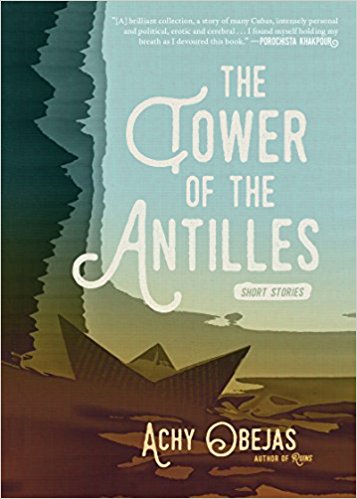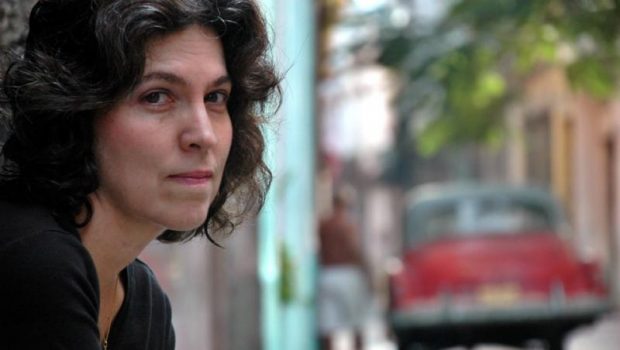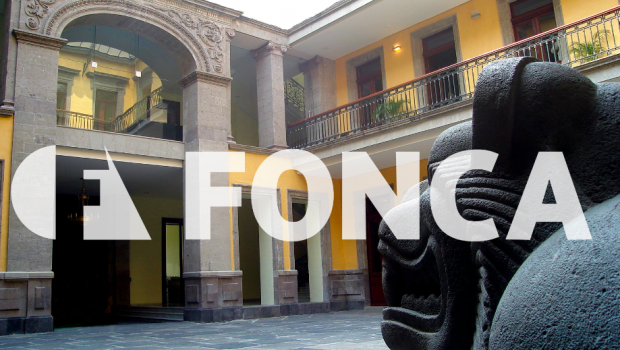The Tower of the Antilles: Short Stories
Greg Walkin
It’s a famous and oft-repeated fact that about 90 miles separate the United States and Cuba. That proximity, at least until the passing of the Teller Amendment, lent many Americans, including William McKinley, to assume it was the United States’ manifest destiny to eventually annex its close neighbor; it also, years later, drew many balseros to build shaky rafts and escape the Castros by entering U.S. territorial waters.
For those Cubans who did eventually emigrate, however—featured in every sharp story in Achy Obejas’ new collection The Tower of the Antilles—the distance across the Florida Straits seems both at once closer and farther away. In the story “The Sound Catalog,” Dulce is drawn back to her days in Cuba with “her Cuban ex-lover,” a woman who is not otherwise named. Serendipitously, she and her lover both obtained visas to live in the United States, and Dulce’s parents, who had already emigrated, had unexpectedly accepted their relationship. This all sets them up perfectly. Yet, as the story demonstrates, there is far more to a new life across that 90 mile divide than just an apartment and some family support.
Told as a series of flashbacks, Dulce is drawn back by distinctive sounds, at least when she has her hearing aid on. The story contains some of the most evocative writing in this collection, at least in conjuring Cuba on the page, such as in this sly sentence:
“In Cuba, the TV was always on somewhere indeed, two or three or four TVs would layer the sound of the one or two legal channels over the one or two or three illegal channels inevitably playing in her neighbors’ house.”
While Dulce “loved that there were thirty different kinds of soy sauce at the grocery store,” her lover couldn’t deal with the abundance of choice. If it hadn’t already been obvious that Dulce’s Cuban lover was an ex, it would have been clear upon Dulce admitting that she hated the sound of her girlfriend’s voice. Throughout, I thought about how ears also detect orientation and balance, and can discern whether just the head is tilted or the whole body is tipping; “Cubans,” Obejas writes, likely knowledgeable about this fact, “are disoriented out of Cuba.” Both Dulce and her lover find that orientation difficult.

Another excellent story, “The Maldives,” explores the ultimate choice of the narrator to secret herself away on the remote island across the globe, rather than stay in the United States—or return to Cuba. Although the narrator here, like in “The Sound Catalog,” is a Cuban lesbian with hearing difficulties, her life story plays out very differently. Her hearing issues are caused by a benign tumor “shaped like a two-inch comma and leaning heavily to the left,” and she is estranged from her father because he was incapable of accepting her homosexuality. In Florida, staying with a friend, she is awestruck by a “spare” laptop; for her, Cuba meant not “Tropicana and classic cars” but living in a crowded three bedroom apartment. After her illness is diagnosed, she shudders thinking about returning to Cuba “to have brain surgery at a hospital where the power went off and on without regard to what was happening on the operating table,” but also finds no solutions in staying in the United States, where she is unable to find health insurance or afford the expensive, experimental treatments needed to ameliorate her condition.
While “The Sound Catalog” and “The Maldives,” along with nearly all of the stories in this collection, were written in English, “Kimberle” was originally written in Spanish; here it is presented in an English translation by the author herself. Even if the ending does tend to wrap up its threads a little too conveniently, “Kimberle” draws such a distinct portrait of its contrasting characters that it stands out in the collection. Kimberle and the narrator have known each other since both had arrived from Cuba; much later Kimberle moves in with her friend after calling her in suicidal desperation. While the narrator’s rare books keep disappearing, they begin a sexual, if not romantic, relationship, seducing other women for threesomes but never directly engaging each other. Like the great short stories, it succeeds in always keeping the reader on edge.
In “Waters,” the protagonist, perhaps a stand-in for the author, gives some likely meta-insight into why “Kimberle” was written in Spanish. Having coffee in Havana at the home of a Cuban poet, the narrator, a writer herself, tells her host: “Some things come to me in English, others in Spanish. I write in whatever language it comes to me.” The important thing, the narrator continues, is that each work is one or the other—there is no overlap. (This seems a metaphor for the struggles with identity that many characters in this collection face. As the earliest story in the collection, it seems to provide a blueprint for the others.) Indeed, “Kimberle” was written during the author’s time back in Cuba, and demonstrates the difficulty in reconciling one’s past with one’s present, especially when the past is staring one in the face on a beach.
Like many of her characters, Obejas herself is a Cuban émigré; she was taken to Indiana at the age of six with her family. Since then, she has returned to Cuba and come back to United States again. She is also the author of several books of fiction, including two novels, and a collection of poems, as well as a prolific translator, having translated works by authors such as Junot Diaz into Spanish. Being born in Havana, she has said, “has pretty much defined the rest of my life.” She added: “I’m more Cuban here [in the United States] than I am in Cuba, by sheer contrast and repetition.”
The conflict in these tales centers on the complexity that being Cuban endows on those who have left the island—the way they tend to gravitate to whatever identity they have left behind, or how to pack it up and forge ahead—what Objeas has called “the issue of rupture, of belonging then not belonging.” Nowhere is that perhaps more apparent than in “The Cola of Oblivion,” a brief punch of a tale that centers on a lonely dinner in an empty Cuban restaurant, involving a “visitor”—whose parents had taken her from Cuba—and a family who had remained behind to “jump up and down” for the regime. Initially jarring (in a good way), it doesn’t feature a character directly who had emigrated, but delves into the contrast between Cubans and Cuban-Americans, and so explores that “rupture.” It’s the kind of story that gets better with each read. At the end, the family eventually proposes a sham marriage in order to help them abscond, too. “Your mother,” one of them tells the visitor, “never sent a single vitamin…not a single can of meat or iPod, not a single anything.” One can imagine this was only the beginning of the possible remonstrations.
As the story shows, the gap between the “visitor” from the United States and the Cuban family is much greater than 90 miles; and as for the all the characters here, the gap between the Cuban in them and the American they could be is impossible to truly bridge. The Tower of the Antilles provides a fascinating insight into these two worlds, and Obejas has proven herself a writer able to access great depths of the Cuban-American identity.
 Greg Walklin is an attorney and writer living in Lincoln, Nebraska. His book reviews have appeared in The Millions, Necessary Fiction, The Colorado Review, and the Lincoln Journal-Star, among other publications. He has also published several pieces of short fiction. Twitter: @gwalklin
Greg Walklin is an attorney and writer living in Lincoln, Nebraska. His book reviews have appeared in The Millions, Necessary Fiction, The Colorado Review, and the Lincoln Journal-Star, among other publications. He has also published several pieces of short fiction. Twitter: @gwalklin
©Literal Publishing
Posted: July 19, 2017 at 10:06 pm










